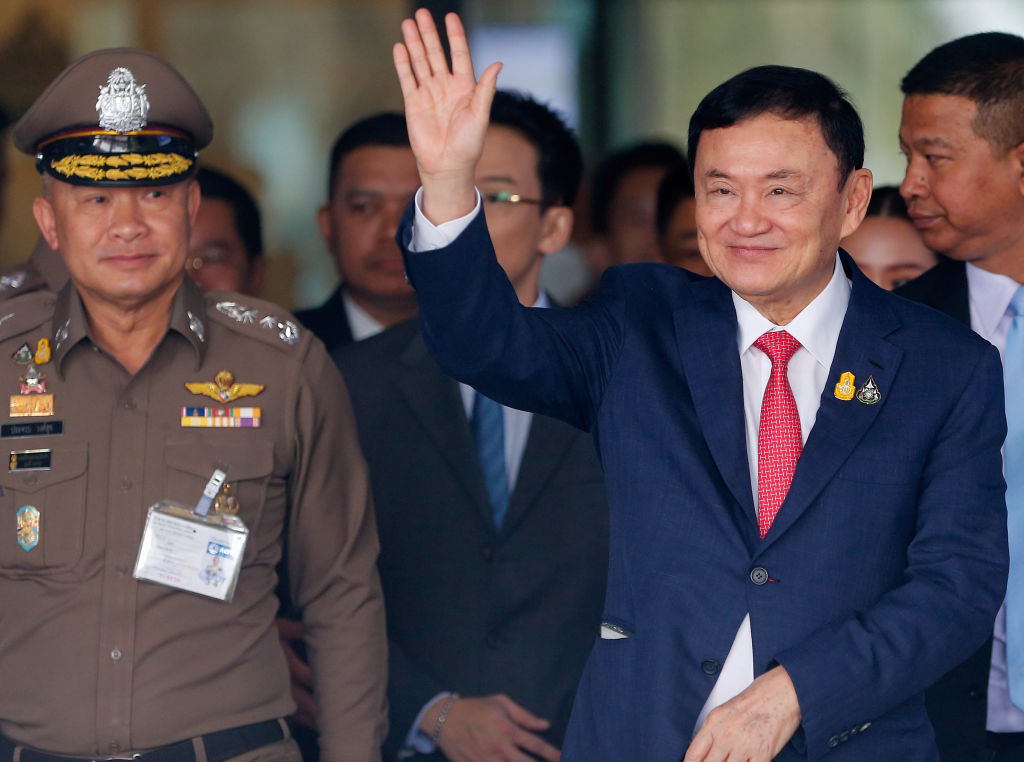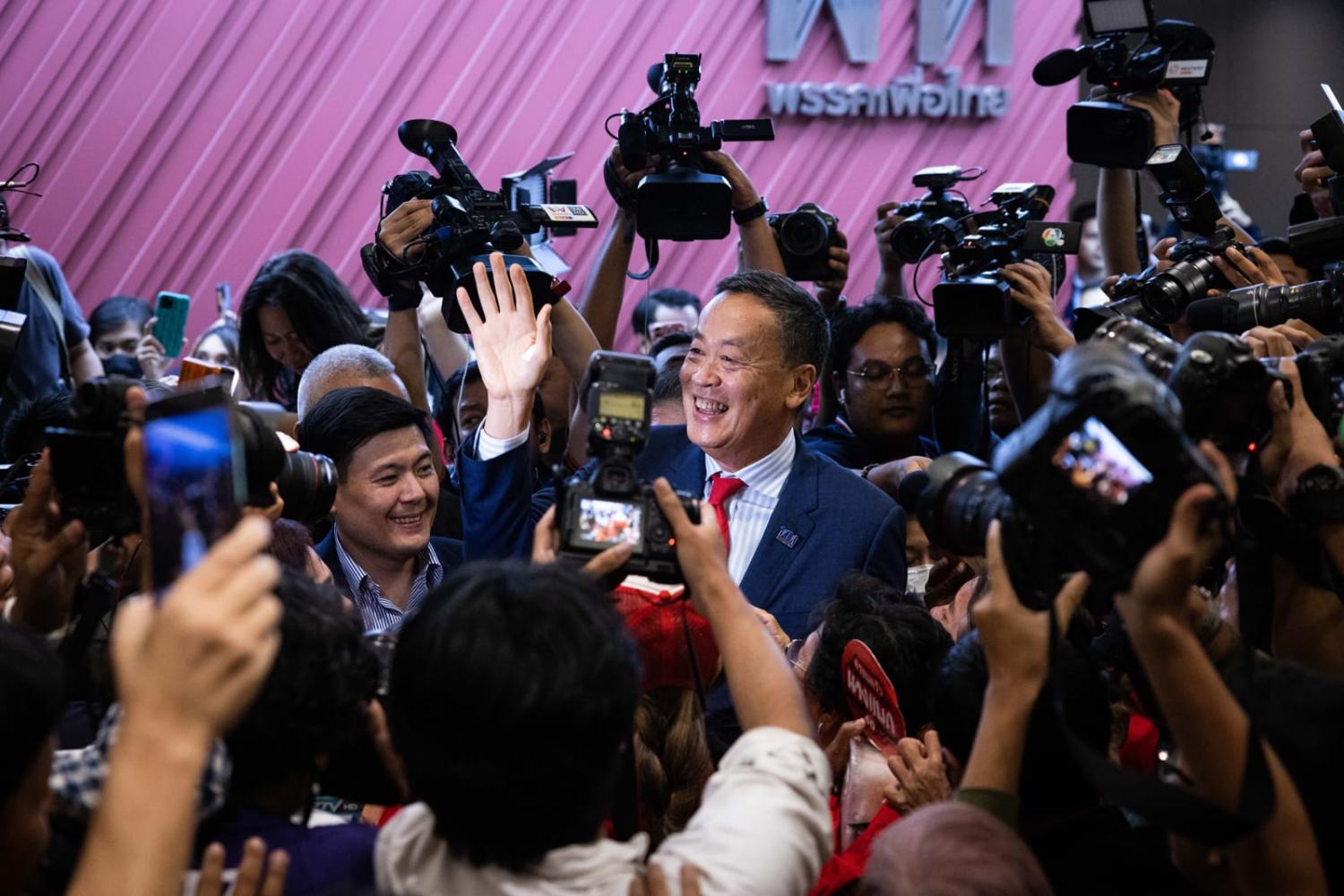Pheu Thai, arguably Thailand’s most successful political party in terms of election wins, was founded in the late 1990s by a former telecom tycoon Thaksin Shinawatra. Starting out with the name Thai Rak Thai, the party went on to win the 2001 election, allowing Thaksin, as Prime Minister, to do what no one thought possible: pressing ahead with cash-injection policies aimed at tackling entrenched poverty.
The policies included the village fund scheme, where each village received a one-million-baht fund for microlending. Another was the “One Tambon, One Product” scheme, to support village-level enterprises. The 30-baht health scheme aimed to deliver a universal healthcare system to guarantee access to key treatment for all Thais at a single price.
In the years since, Thai politics has felt the prolonged effects of these policies. Thaksin was popular enough to be re-elected in 2005, fled to exile in 2006 after a coup, yet Pheu Thai regained power in 2011 with Thaksin’s sister, Yingluck, as prime minister. The government then went about implementing a rice-pledging scheme to buy rice from farmers at a rate higher than offered in the market with the goal to help sustain income for farmers. The scheme was rife with mismanagement and set the country back 500 billion baht (US$14 billion) by some estimates. Yingluck, who is currently in self-exile, was later found guilty of negligence in court.
But the popularity of schemes focused on the poor was not lost on Pheu Thai’s opponents. When former army chief Prayuth Chan-ocha ousted Yingluck in 2014 in another coup, his government instigated similar populist schemes such as the welfare card for the poor, the “half and half” expense-sharing scheme, and the subsidy on domestic tourism.
Populism, however, it seems can only extend so far. In the most recent elections held in May this year, newcomers to politics in Thaksin’s northern hometown of Chiang Mai saw candidates from the progressive Move Forward party win in seven electorates while Pheu Thai won in two. In another stronghold of the northeast, Move Forward, which has heavy support among younger Gen Z voters, also gained ground elsewhere, leaving Pheu Thai in second place nationally for the first time since 2001.
But Move Forward couldn’t secure government, despite dominating the vote. After a political deal that saw Thaksin-backed candidate Srettha Thavisin take over as prime minister, populist policies have again been deployed, with a raft of cash-handouts laid out.
New government officials will see their monthly salary increased from next year. Households’ energy bills have been subsidised. Farmers have seen a moratorium on their debts and fresh cash transferred to their bank accounts. The minimum wage is said to soon be raised.
And most controversially, the 10,000 baht (US$284) digital money scheme could begin tentatively from May 2024, targeting the estimated 50 million Thais aged above 16 with a monthly salary below 70,000 baht (US$1,988) and savings below 500,000 baht (US$14,000).
According to Srettha, this splurge will create a huge demand, and wake up the Thai economy from its “sleepy” state.
But economists have questioned if the Thai economy is really as sleepy as the PM says – and how much debt will be incurred from cash handouts. Srettha has said the Thai GDP on average in the past decade remained stagnant at below two per cent, and his goal was to see it increase to five per cent in the coming years.

Inevitably, Srettha’s plans remind the public that Thaksin’s influence – or at least his thinking – still hovers over Thai politics. It has long been evident. In 2011, Yingluck ran at the election with a slogan “Thaksin thinks, Pheu Thai does”. Even today, the leading role of Thaksin’s youngest daughter Paetongtarn in Pheu Thai tells everyone that her father is still a force in Thai politics.
But the lesson of the past two decades – punctuated by two coups – is how fragile Thai democracy can be.
Thaksin returned to Thailand in August and was transferred to prison on corruption charges as soon as he arrived. He was later moved to a hospital to receive medical treatment where he has been reportedly staying since, prompting some cynicism about whether a “deal” had been struck to avoid jail. Thaksin received a royal pardon about a week after returning to Thailand, reducing his sentence from 8 years to one.
But young voters who sought to change Thai politics through the May election don’t really concern themselves with Thaksin all that much. Move Forward received 14.4 million votes compared to Pheu Thai’s 10.9 million. The supporters of Move Forward were too young when Thaksin was in power. Their faith is in the promises of Move Forward for decentralisation, as well as political and bureaucratic reforms meant to create long-term prosperity and a strong, grounded democracy. Thaksin’s style of populism doesn’t hold the same appeal.
Certainly, Thaksin’s policies and those inspired by his approach have helped change the quality of life in rural Thailand. Thaksin’s voting bases also stood up to authoritarianism and helped to lay the groundwork for democratisation. But there is no reason to be surprised if Srettha’s populism isn’t greeted with the same fanfare. His policies, drafted with the help of those who worked with Thaksin during his tenure, are simply too much of a repeat of the same formula that used to guarantee an election win. But the results of the May election show voters yearn for more.

